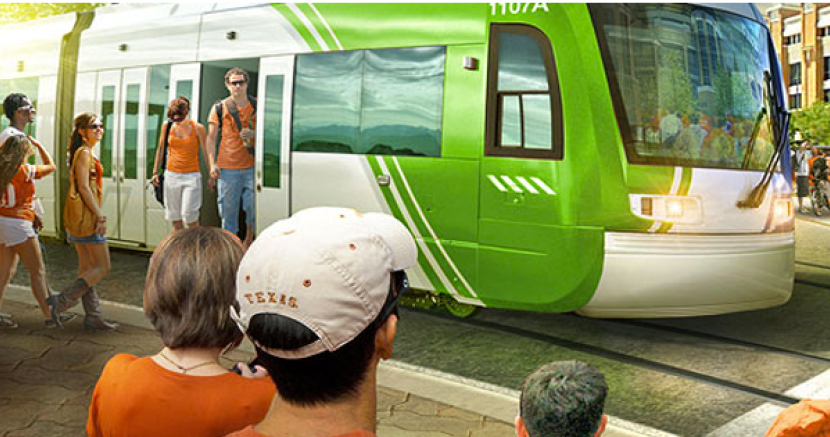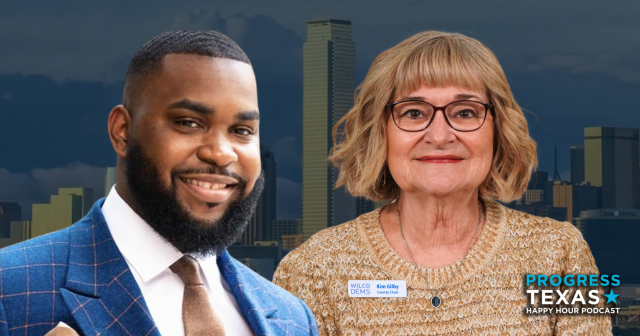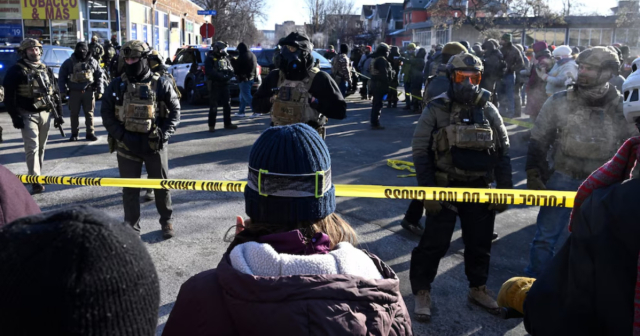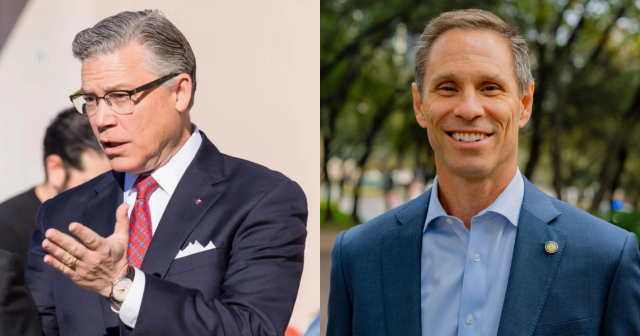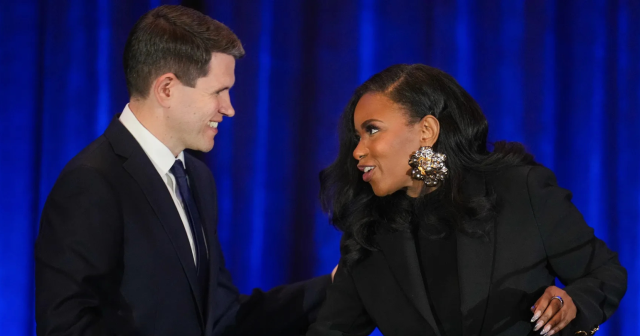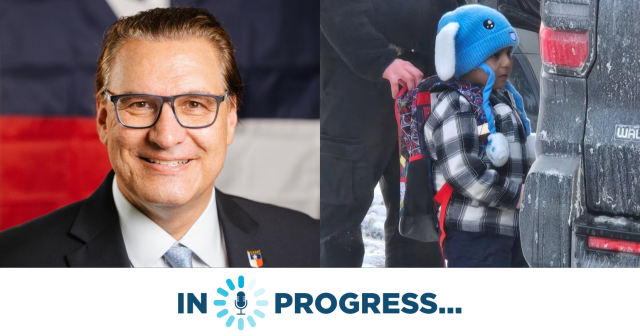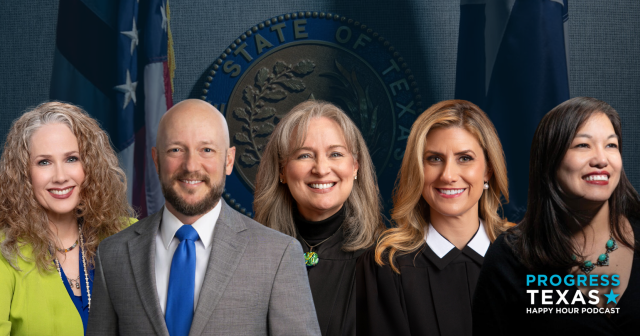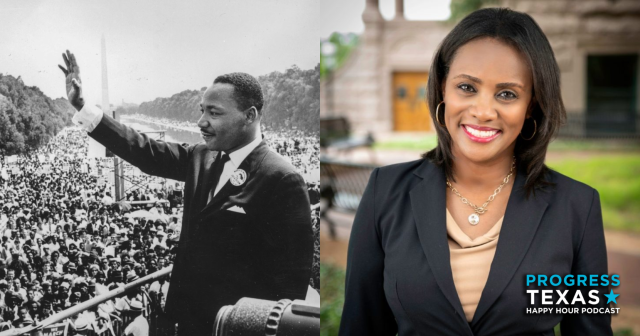We support Austin's local bond proposition, commonly known as Prop 1 - the plan for starting our local rail transit. We support Prop 1 because it is a strong first step towards solving our long-term traffic solutions.
As the Austin Chronicle wrote in their endorsement for Prop 1:
"We believe it's a good first [rail] line that responds to the city's projected growth; we also believe it's a potentially fatal mistake to wait for a perfect consensus (which is never possible, anyway)."
We agree with the Austin Chronicle, along with countless other progressive groups, that Prop 1 sets us on the path we need to go to address Austin's long-term transportation needs.
In more detail, here are five reasons we support Austin's Prop 1:
1. Prop 1 Starts a Vision for the Future
We're tired of political inaction. We want to see something get done.
The challenges faced by Austin's growth cannot be met with any one policy shift, or any one candidate. Managing our growth will require any number of new policies - transit planning is just part of that puzzle. Affordable housing, shifting our city's supply of energy, raising commercial property taxes, expanding homestead exemptions, and improving health care access are other pieces of the puzzle we need to complete to manage our city's growth. As one writer put it:
...real property tax reform needs to come from removing commercial property tax exemptions and addressing existing housing supply shortages, not by excising needed infrastructure for our City. There are means of property tax relief that do not preclude important investments in our future.
Above all else, Prop 1 is a plan that gets us started towards the path to a better future for Austin.
We endorse Austin's local Prop 1, and encourage you to vote for it on Election Day.
2. Better for the Environment
Ridership numbers and costs matter, but the impact of our proposed traffic solutions on the environment should be an equally important concern. It's telling that the Texas League of Conservation Voters, Clean Water Action, Austin Environmental Democrats, the Austin Regional Group of the Sierra Club and Environment Texas have all endorsed Austin's Prop 1.
[[{"fid":"1754","view_mode":"default","fields":{"format":"default","field_file_image_alt_text[und][0][value]":"Austin Prop 1","field_file_image_title_text[und][0][value]":"","field_folder[und]":"906"},"type":"media","attributes":{"alt":"Austin Prop 1","height":"271","width":"550","class":"media-element file-default"}}]]
3. Better for Traffic
Austin is the 4th worst city in America for traffic, worse than New York City. We can't fix a problem of that magnitude overnight, especially so long as Republicans in charge of the state of Texas continue to under-invest in critical transportation improvevements throughout the Central Texas region.
Absent a magic wand, any proposed solution to improve traffic must be seen as part of a long-term series of solutions Austin will have to implement over many years. While we implement long-term rail solutions, we can't ignore critical short-term needs our city faces that will be financed by Austin's Prop 1.
The $600 million for the light rail will give Austinites another option for travel. But the $400 million for road planning will also go a long way, providing improvements that include:
- Intersection rebuilds at I-35 and Riverside, Oltorf, Stassney and William Cannon
- A new interchange at Riverside and US 183
- Direct connections from SH 71 to the airport
- Widening of RM 1826
- A new Austin Traffic Command Center to utilize advanced technology to better manage traffic flow throughout the city;
- Engineering studies for future road fixes along Loop 360, RM 620, RM 2222, Parmer Lane, and RM 1826, as well as expansion of urban rail to the airport, Lamar / Guadalupe corridor, Mueller, Seaholm, and South and Southwest Austin.
[[{"fid":"1755","view_mode":"default","fields":{"format":"default","field_file_image_alt_text[und][0][value]":"Austin Traffic Study","field_file_image_title_text[und][0][value]":"","field_folder[und]":"906"},"type":"media","attributes":{"alt":"Austin Traffic Study","height":"360","width":"640","style":"width: 600px; height: 338px;","class":"media-element file-default"}}]]
4. The Tea Party Opposes Austin's Prop 1
While there are some pro-transit progressives who oppose Austin's Prop 1, the vast majority of money and manpower leading the fight against Austin's Prop 1 is coming from conservative donors who are politically aligned with the Tea Party. Naturally, the Tea Party opposes rail, too. These are the groups that fight tooth and nail, every day, to limit investments in Texas' future. Like with so many other issues, all you have to do is follow the money:
- Longtime Republican Jim Skaggs is the treasurer of the anti rail PAC, and has given at least $50,000 to the PAC. Skaggs was recently rated as "False" in PolitiFact for lying about the impact of Prop 1 on Austin's roads.
- David Hartman, an "expert" for Tea Party groups like the Texas Public Policy Foundation, has also given at least $50,000
- Tea Party groups like Empower Texans and Americans for Prosperity Texas have gotten out the word to their Republican supporters in Austin to oppose the light rail plan.
These Tea Party groups have spent years sabotaging our state's infrastructure needs. We can't let them start tearing apart Austin, too.
[[{"fid":"1756","view_mode":"default","fields":{"format":"default","field_file_image_alt_text[und][0][value]":"Koch Brothers","field_file_image_title_text[und][0][value]":"","field_folder[und]":"906"},"type":"media","attributes":{"alt":"Koch Brothers","height":"360","width":"640","style":"width: 600px; height: 338px;","class":"media-element file-default"}}]]
5. Cost Effective Transit Solution
Much is made about the $600 million price tag for Austin's proposed rail line. But as the Austin Chronicle noted, the initial costs include a bridge across Lady Bird Lake - arguably the most expensive component of any proposed rail system for Austin - and every year we wait it becomes more and more expensive to build rail.
Additionally, the $400 million for road improvements - which the most prominent pro-transit, anti-Prop 1 groups also oppose - are critically important to our city's infrastructure. Fixing traffic light timing and improving traffic flow for Austin's major highway interchanges are short-term citywide improvements we desperately need.
Other key facts on cost include:
- Every dollar the City of Austin puts forward for this rail route will be matched by the federal government - a match that cannot be guaranteed with alternate routes, such as the Guadalupe/Lamar route envisioned by those who are pro-transit yet anti-Prop 1.
- It will cost less per mile than systems built in Houston or in Portland, according to the City of Austin (graph below).
- It takes twice as many buses to handle the same number of passengers as rail, and the buses have half the shelf-life as the rail cars. Therefore, the fleet costs for rail cars and bus rapid transit vehicles is almost identical.
[[{"fid":"1757","view_mode":"default","fields":{"format":"default","field_file_image_alt_text[und][0][value]":"Austin Prop 1 Cost Study","field_file_image_title_text[und][0][value]":"","field_folder[und]":"906"},"type":"media","attributes":{"alt":"Austin Prop 1 Cost Study","height":"900","width":"1200","style":"width: 500px; height: 375px;","class":"media-element file-default"}}]]
DONATE
Your donation supports our media and helps us keep it free of ads and paywalls.

